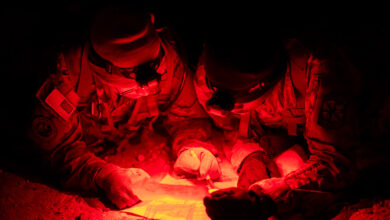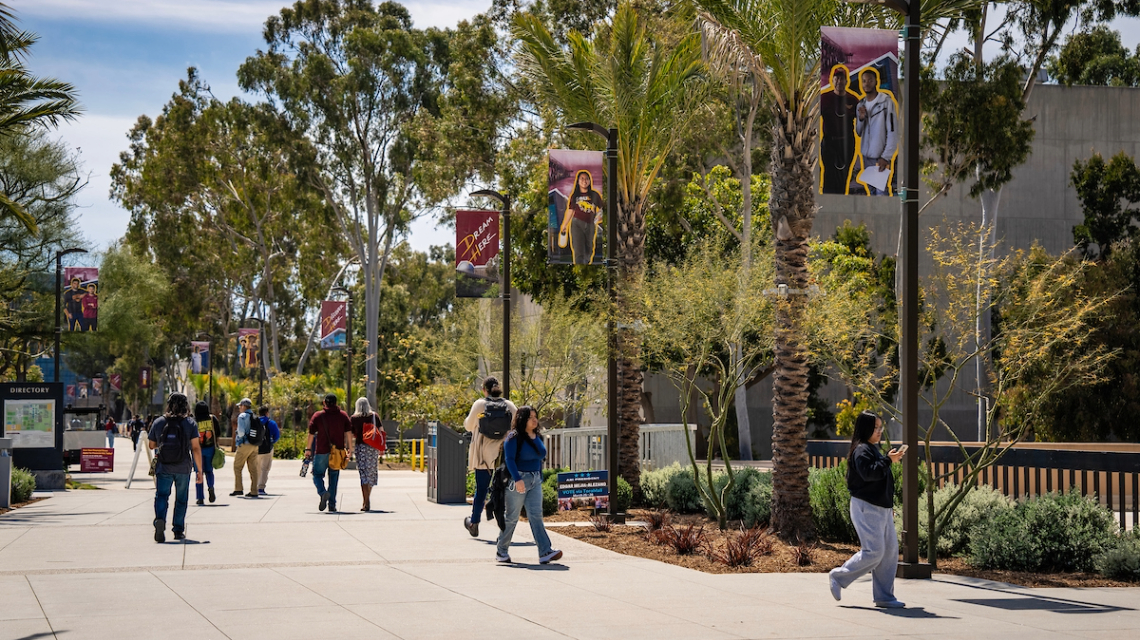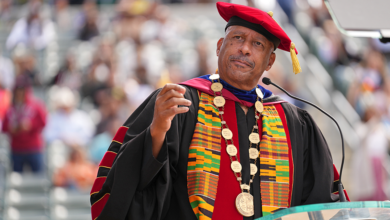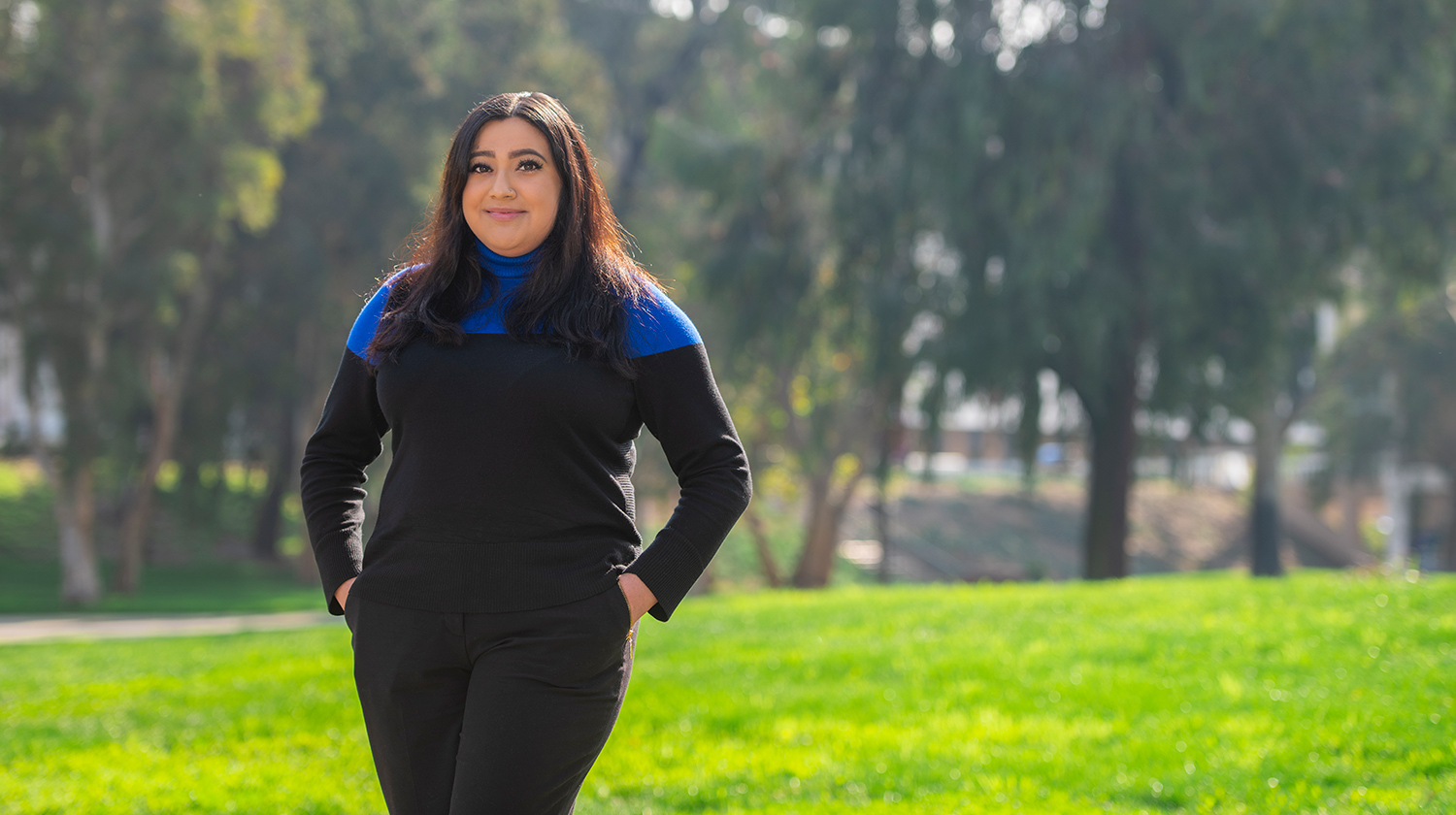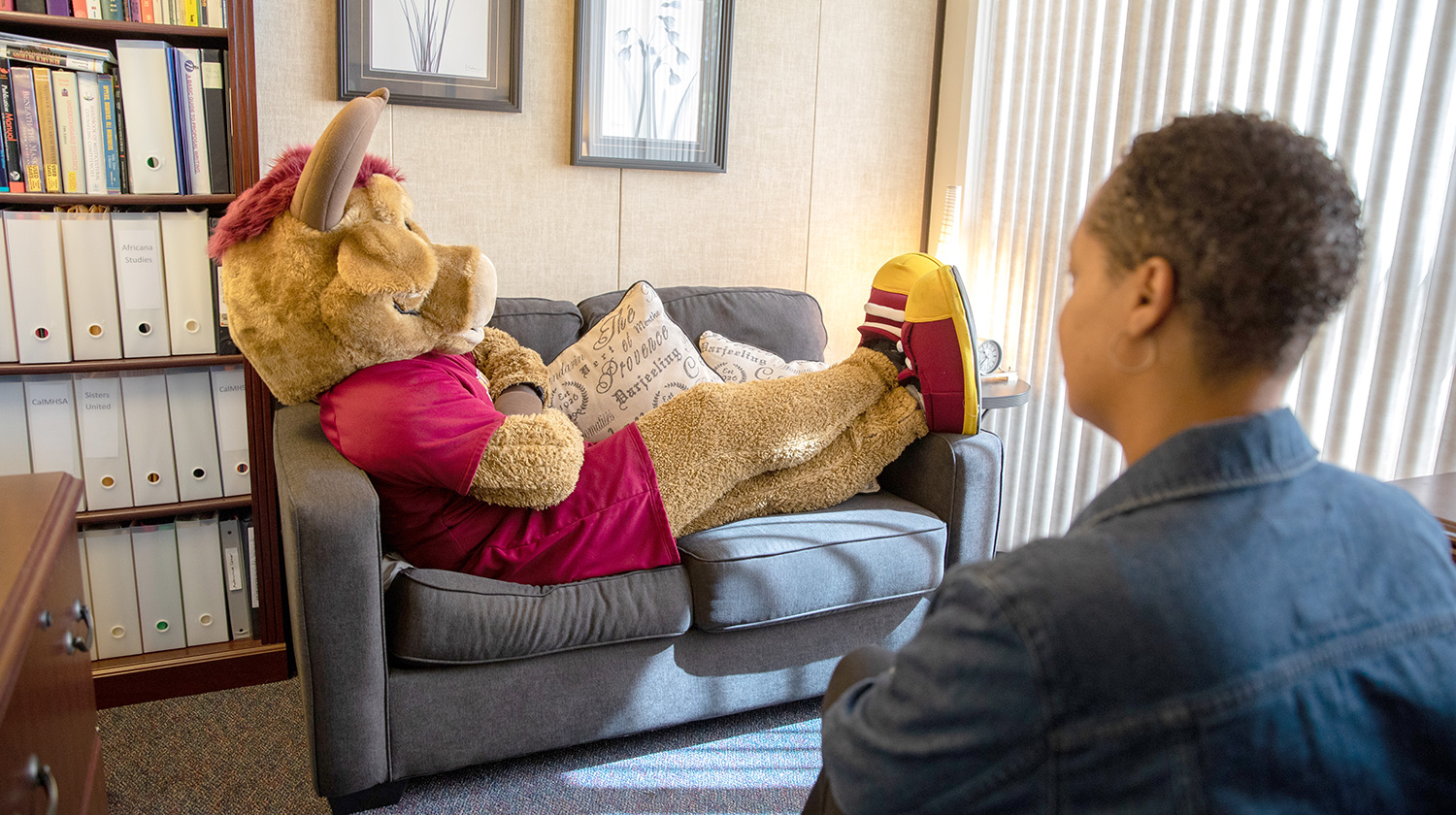 With an eye toward strengthening the university’s mental health services, CSUDH’s Student Psychological Services has become independent from Student Health Services. The new department is being headed by Interim Director Tiffany Herbert, a long-time tenured faculty member and psychologist at CSUDH.
With an eye toward strengthening the university’s mental health services, CSUDH’s Student Psychological Services has become independent from Student Health Services. The new department is being headed by Interim Director Tiffany Herbert, a long-time tenured faculty member and psychologist at CSUDH.
“As a campus, we have had many discussions about the need for stronger and more robust mental health services,” says Vice President for Student Affairs William Franklin. “As we prepared for an academic year unlike any other, we had to brace for the likelihood of a larger wave of student mental health challenges. In light of those facts, and in consultation with former Director Janie MacHarg and President Parham, I made the decision to move the unit in a new direction.
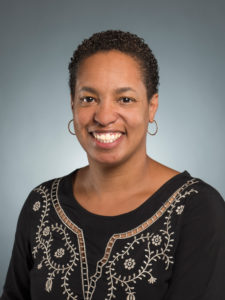
“I firmly believe that this strategy, coupled with Dr. Herbert’s clinical and scholarly expertise, will allow us to advance accessible, consistent, culturally competent, and high-quality mental health services,” adds Franklin. “While bundled as one unit, I simply did not think psychological services could take this bold and intentional path.”
Herbert officially took her new position on July 1, and agrees that creating an independent psychological services unit was a necessary step in bolstering the campus’ mental health resources. “When the office first opened in the late 1970s, putting the counseling center and the health center together made sense,” she says. “Mental health counseling was still very stigmatized, so bringing it together with the health center was a way to make it more acceptable to the community.”
Over time, says Herbert, it became clear why most universities have separate health and counseling offices. “They’re very unique departments,” she says. “We don’t operate under the same model. It has always been the intention of our president and vice president to separate the two, to give Student Psychological Services what it really needs in terms of growth and its own identity and development.”
This year has seen more than its fair share of mental health challenges, from the COVID-19 pandemic and lockdowns to the murders of George Floyd and Breonna Taylor and subsequent Black Lives Matter protests. Student Psychological Services provides a wealth of mental health resources for students, including individual and group therapy, workshops, and support groups. It was important that these services continue seamlessly, and Herbert has successfully led the office through two simultaneous transitions: becoming an independent office while also moving services online.
Student Psychological Services provides mental health resources for students, including individual and group therapy, workshops, and support groups. Office hours are Monday – Friday, 8 a.m. to 5 p.m., but those interested in their services are encouraged to call (310) 243-3818 at any time, or contact them by email at psychservices@csudh.edu.
Those who feel they are experiencing a psychological emergency should call 911 immediately or go to the nearest emergency room.
Herbert has been with CSUDH for 17 years, ever since she arrived on campus as a pre-doctoral psychology intern. She fell in love with the campus and its students, and was officially hired as a full-time counselor in January 2005. Over the years, Herbert has held several positions on campus, including a year as chair of the Africana Studies department. As such, she’s developed relationships with faculty, staff, and students from all areas of the university.
Her stellar reputation and strong campus connections made Herbert a natural pick to head up the new Student Psychological Services office, says Franklin. “Dr. Herbert has made noteworthy and sustained contributions to this campus for many years. She is respected by colleagues from every corner of the campus and students who know her are effusive in their praise. It was an easy decision.”
For her part, Herbert looks at the change as an opportunity to grow and expand their resources and capabilities. “We’re very much a center in transition,” she says. “We’ve had a few long-time counselors retire, and now have a pretty youthful, diverse staff. We’re really making a transition in terms of philosophy, age, race, and in so many other ways. It’s quite an interesting time to be here.”
The COVID-19 pandemic and resulting move to virtual counseling provided Herbert with an early challenge, but she says the office has adapted well. “Initially, I think that people just didn’t understand doing therapy virtually – it’s just not the way our profession works,” she says “Human contact is all we know! It’s been a shift for all of us, students and therapists, as well.”
Herbert says the summer gave the office a chance to recalibrate and come to terms with their new virtual reality. “We really just needed a moment to slow down,” she says. “The summer gave us a moment, and now we’re up and running at full speed. Everyone’s adjusted very well. In actuality, our services never stopped. Now we’re back to full capacity – but virtually.”
All of the department’s services have been successfully migrated online, including individual and group therapy sessions, workshops, and classroom visitations. Continuing their outreach services is vital, because “our job is to create community health, not just individual health,” says Herbert.
“It’s systemic,” she adds. “We educate faculty, students, staff, and administrators, and seek to bring information to the entire community in order to promote mental health and wellness for the entire campus. If staff and faculty are prepared to deal with mental health issues, then they’re more prepared to support their students. Everything we do is student centered. It’s about making people more empowered and more prepared, and helping them become advocates for mental health.”
Vice President Franklin, for his part, is confident that Herbert will lead the office into a bright future. As he puts it, “With its own identity and charismatic leader, the best is yet to come.”

